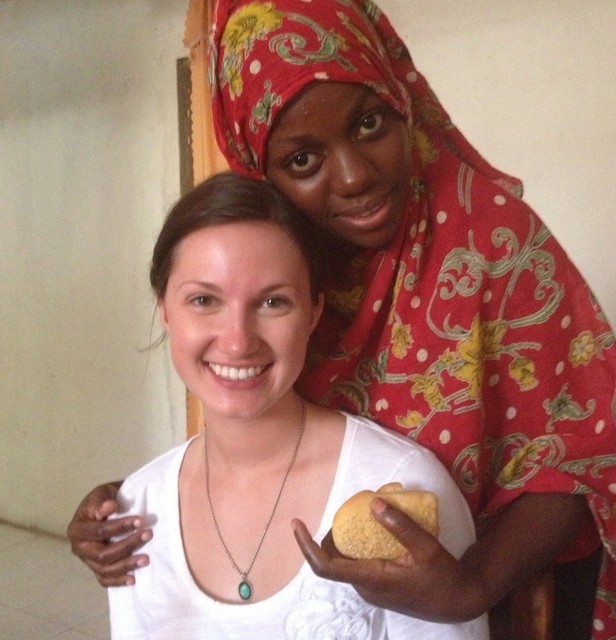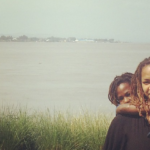Making New Best Friends While Teaching in Tanzania
I met Ruhaila on my first day of teaching. She was sitting quietly, arms wrapped lovingly around her dictionary, with a sassy smirk across her face. She was intimidating and looked like she was not being challenged. Great, I thought. Here I was, my first day, teaching a class not even listed on my schedule with a know-it-all sitting front and center waiting for me to teach about environmental degradation. As I am neither an environmental studies major nor studying education, this all came very naturally.

I saw her judgmental glances; they made me want to run to the ocean and swim back to the comfortable shores of Delaware. She was onto me – she knew I was clueless.
After hopelessly reading the textbook for thirty minutes, I gave them an exercise. Of course she was the first to raise her hand.
“Could you explain chlorofluorocarbons?” she asked.
No I cannot. Seriously girl – figure it out. This is what I wanted to say, but instead I put on a smile and told her I’d do the best I could.
After this question, we began talking. Her ambition was to be a doctor and her English was one of the best I had heard thus far. Ruhaila’s smile stopped looking so intimidating and transformed into a kind invitation for friendship. I accepted.
The next day, I lent her a Time magazine placing post-it notes on every article medicine-related. I knew that even if she couldn’t understand everything, she could see that becoming a doctor was possible. In return for the magazine, she invited me to her home. Again, I accepted.
Forty-eight hours later, bread was being shoveled down my throat and headscarves delicately wrapped around my sweaty forehead. Ruhaila proudly introduced me to all the people around her village. She taught me Swahili and orchestrated a full-blown photo shoot with the rest of her family and I.
Hours passed of talking about boys and running around the house, giving piggyback rides to her nephews. Ruhaila, a seventeen-year old Muslim girl, had her entire career figured out and she would consider boys after she achieved that.
Somewhere along the five weeks I knew Ruhaila, we became best friends. On my last day of school, I was given a small party where the school selected a representative from every class to give a speech looking back on our time together. I prepared myself and stashed some toilet paper in my back pocket. I didn’t bring enough.
Ruhaila gave one of the speeches and she was already crying before she even started speaking. After I started crying, all of the teenage girls in the room began dropping like flies, leaving the one male administrator in the room to deal with fifteen teary-eyed girls on his own.
I can’t even remember what she said in her speech, maybe because I was so focused on trying to hold back my tears.
Ruhaila and I may come from completely different backgrounds, but our silent thoughts at that moment were identical. I will never forget you.
Photo by Emma Way.

America’s Unofficial Ambassadors (AUA) is a citizen diplomacy initiative dedicated to increasing the number of Americans who volunteer in the Muslim World. Unofficial Ambassadors volunteer with grassroots organizations in Africa, Asia, and the Middle East to meet some of the Muslim World’s most urgent development needs in areas such as education, youth services, and civil society.








